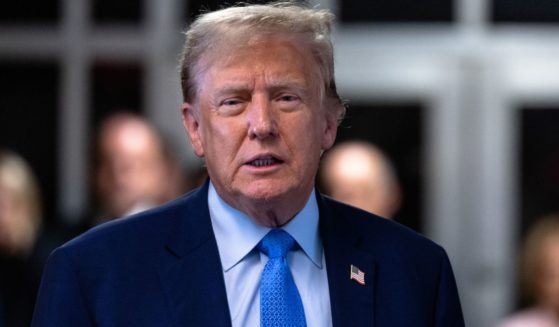
Don't Trust Ukraine: 'Ally' Using Same Propaganda Trick Britain Used to Ease US Into WWII - Part Two
This story follows part one of “Don’t Trust Ukraine,” which walks through the history of information operations weaponized against the United States by its allies.
Today, as the war in Ukraine continues, disinformation operations continue as well, fielded by Ukrainian officials in concert with pro-Ukraine activists, lobbyists and diaspora organizations.
These campaigns aim to manipulate and shape American opinion, with hopes of convincing the U.S. to join a war that could turn nuclear, threatening American prosperity and security.
These operations aren’t always knowingly coordinated.
Nevertheless, they all aim to manipulate Americans into giving lethal aid to Ukraine, moving the U.S. closer to a clash with Russia.
Now, one might dislike the term “operations,” preferring “persuasion” because Ukraine might be a friendly country or ally.
However, one man’s “persuasion” is another man’s “information operation.”
In as much as the phenomenon described includes the “planned use of propaganda and other psychological operations” to alter “the opinions, emotions, attitudes, and behavior,” it qualifies as an information operation — one must call a spade a spade.
Ukraine’s Disinformation Operation
Since the February 2022 invasion, Ukraine has expanded the number of lobbyists it employs in the United States.
The Quincy Institute for Responsible Statecraft, in a July 2022 report, noted that Ukrainian lobbying activity in the U.S. exceeds that of Saudi Arabia by four times.
Ukrainian information operations are assisted by the involvement of organizations like Razom — called the Ukrainian “AIPAC” by pro-Ukraine activist Paul Massaro — and the diaspora group the Ukrainian Congress Committee of America.
These organizations call for further support of Ukraine at the risk of escalation and nuclear war.
This includes, for example, bringing Ukraine into NATO.
Just like the British during World War II, the Ukrainian government and its lobbyists rely on atrocity propaganda.
They also inflate the importance of Ukraine to the U.S. in an attempt to get the U.S. to sacrifice its interests in staying out of the war.
As for disinformation and misinformation in such operations, one example stands out.
The Russian Missile Attack That Never Happened
In November 2022, a missile struck a Polish village on the border with Ukraine.
Without offering evidence, President Volodymyr Zelenskyy and other Ukrainian officials quickly claimed it was a Russian attack on Poland — a serious allegation considering that a Russian attack could lead to NATO involvement in the war.
“The longer Russia feels impunity, the more threats there will be to anyone within reach of Russian missiles. To fire missiles at NATO territory! This is a Russian missile attack on collective security! This is a very significant escalation. We must act,” Zelenskyy said in a video address, Reuters reported at the time.
As one would expect, accusations aimed at Russia spread like wildfire, with pro-Ukraine activists jumping on the bandwagon, seizing the opportunity to call for more aid to Ukraine and involvement in the war.
It was later discovered that it was not a Russian missile that fell in Poland but one used in Ukrainian air defense, embarrassing Ukrainian officials who jumped the gun in spreading misinformation.
Some Ukrainian officials went so far as to call the truth a Russian conspiracy theory — a common tactic used by Ukrainian activists to stifle criticism or truths that don’t align with Ukrainian narratives.
Fortunately, Western leaders did not take the escalation bait laid out by pro-Ukraine activists, and Ukrainian officials failed to escalate the conflict.
America’s Unique Vulnerability
America’s vulnerability to such information operations is exacerbated by the fact that it is a nation of immigrants.
With people coming from so many different countries and with assimilation being a process that takes time, international issues risk becoming domestic issues.
Taking advantage of this, diaspora lobby groups work to harness American power to settle Old World issues, even if such settlements and interventions come at a great economic and diplomatic cost to the country.
Politicians and members of Congress often acquiesce to such groups, championing some of their causes, out of fear of alienating voters.
America’s allies, who want to prevent the country from pursuing its own interests via moves unfavorable to them, often work with such diaspora groups to thwart such America-first initiatives, as Mark Katz noted in his op-ed for National Interest.
Such pressures — not present to the same extent in America’s peer competitors — often make American foreign policy inflexible, if not paralyzed, in pursuing America’s own strictly defined self-interests.
It is no surprise that the founding fathers, including George Washington and Thomas Jefferson, warned against over-involvement in European affairs and permanent alliances. They foresaw the danger that would come when each immigrant group lobbies for what is good for their countries of origin while neglecting what is best for America’s interests strictly defined.
How to Fix the Problem
If the U.S. government and the American people don’t fix this vulnerability, one would have an America that solves everyone else’s problems but not its own, at the risk of exacerbating its enormous debt.
Fixing this vulnerability involves responding to information operations by friendly countries in the same way we would respond to adversaries.
Congress must pass laws that prohibit even friendly foreign governments from hiring lobbyists in the U.S.
If a country wants to raise its concerns to the U.S., it must do so through the appropriate diplomatic channels, not the back-door manipulation of Congressional members and the American people.
Congress must also prohibit diaspora organizations that regularly liaise with foreign officials and overwhelmingly lobby for foreign policy issues from making campaign contributions.
Such a step is necessary to ensure foreign interests don’t influence American elections, friendly or not, through indirect means.
The U.S. government must also publicly call out and criticize attempts by foreign governments, even friendly ones, to manipulate the American public and warn citizens of it.
Lastly, there are many things that the law cannot fix, either because they are hard to regulate or because members of Congress won’t pass such laws because it hurts the coffers of essential donors and their own interests in power maximization.
In these areas, nothing can substitute caution.
Just as Americans need to be wary of information operations conducted by adversaries, it is essential to be mindful of those by friends.
Truth and Accuracy
We are committed to truth and accuracy in all of our journalism. Read our editorial standards.












